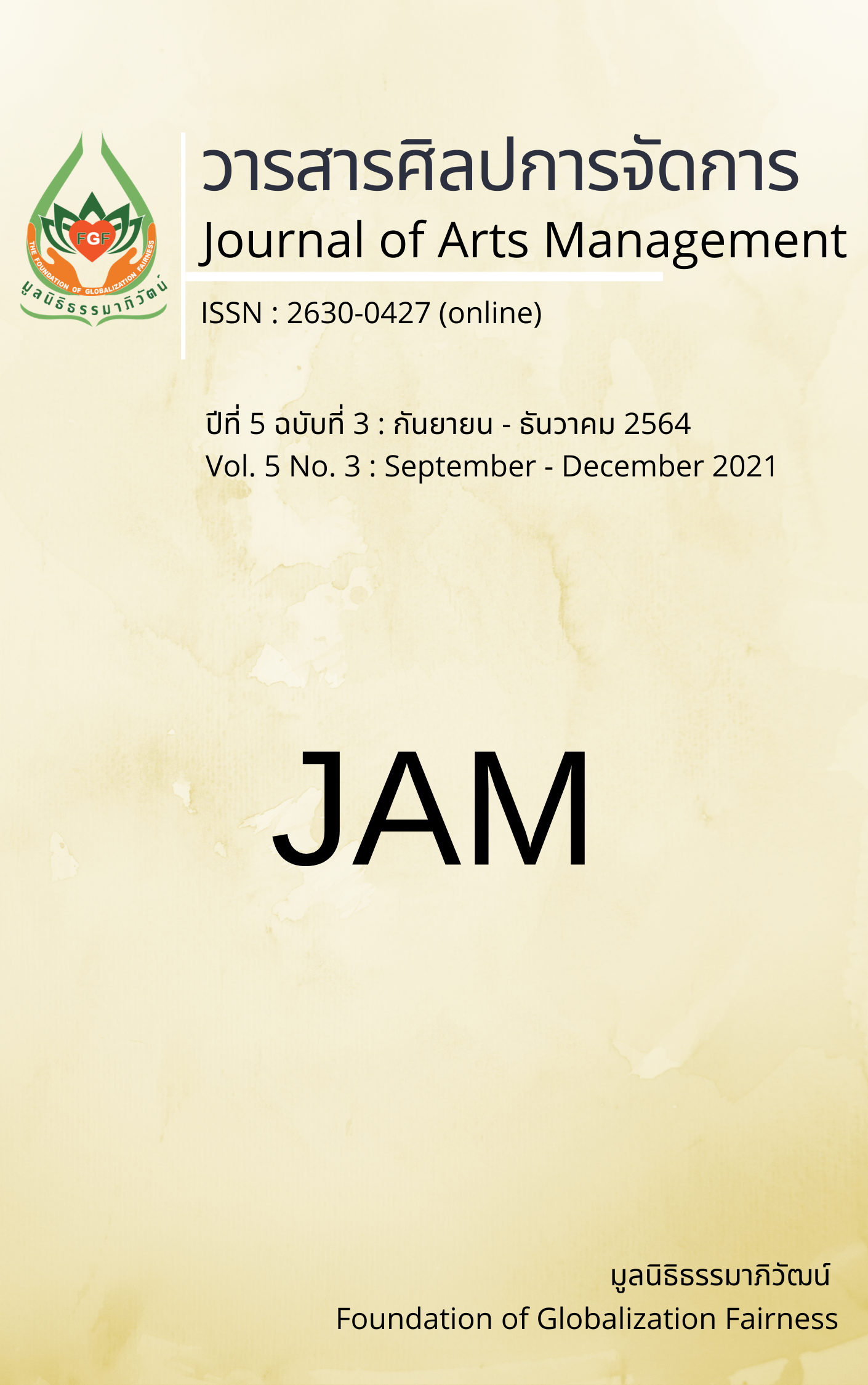A Model of the Causal Factor of Electronic Satisfaction on Booking Online Website Rooms in Thailand
Main Article Content
Abstract
The purposes of this article aimed 1) to study the causal factors of the electronic system satisfaction and room reservation through online booking websites in Thailand; 2) to study the influence of the causal factors of the electronic system satisfaction and room reservation through online booking websites in Thailand; and 3) to create a model of electronic system satisfaction of booking online websites in Thailand. The researchers collected data from interviews with hoteliers, hotel owners, who choose to sell their rooms through OTAs and their users who made room reservations through an online hotel reservation agency. This research was a mixed research. using quantitative research and qualitative research. Data were collected via online questionnaires from users, which was done with a sample of 500, used for the quantitative method, and 12 for the qualitative method. The statistics used in data analysis were statistical analysis using structural equations (SEM) and statistical analysis (Pearson Correlation).
The analysis of structural equations modelling and path analysis showed that 1) the quality of electronic services directly positively affected the satisfaction of electronic systems; 2) electronic complaint handling had a direct positive effected on electronic satisfaction; 3) the quality of the website directly positively affected the satisfaction of electronic systems; 4) electronic preferences directly positively influenced electronic loyalty; and 5) electronic service quality, electronic complaint handling, and website quality. There was a positive indirect influenced on electronic loyalty through electronic preferences. Considering the value =2 = 45.36, df= 33,
2/df = 1.375, p-value=0.07425, RMSEA= 0.027, RMR=0.006, SRMR=0.012, CFI=1.00, GFI=0.99, AGFI= 0.96, NFI= 1.00, NNFI=1.00, index was correlated with empirical data.
Article Details
Views and opinions appearing in articles in the Journal of Arts of Management It is the responsibility of the author of the article. and does not constitute the view and responsibility of the editorial team I agree that the article is copyright of the Arts and Management Journal.
References
Afshardost, M. (2013). Linking trust, perceived website quality, privacy protection, gender, and online purchase intentions. Journal of Business and Management, 4(13), 63-72.
Anderson, R., & Srinivasan, S. (2003). E-satisfaction and E-loyalty: A contingency framework. Psychology and Marketing, 2(20), 123-138.
Barbara, R L., & Soureli, M. (2006). The antecedents of consumer loyalty in retail banking. Journal of Consumer Behaviour, 1(5), 15-31.
Chansakul, A. (2015). The tourism industry manages the accommodation business online. Bank of Thailand.
Durmus, B., Ulusu, Y., & Erdema, S. (2013). Which dimensions affect private shopping E-customer loyalty. Procedia-Social and Behavioral Sciences, 99, 420-427.
Hair, J. F., Black, W. C., Babin, B. J., Anderson, R. E., & Tatham, R.L. (2006). Multivariate data analysis (6th ed.), Pearson.
Kedah, Z., Ismail, Y., Haque, A., & Ahmed, S. (2015). Key success factors of online food ordering services: An empirical study. Malaysian Management Review, 2(50), 19-36.
Keller, K. L. (1993). Conceptualizing, measuring, and managing customer-based brand equity. Journal of Marketing, 57(1), 1-22.
Kotler, P., & Keller, K. (2016). Marketing management (15th ed.). Pearson Prentice Hall.
Maxham, J. G. (2001). Service recovery’s influence on consumer satisfaction, word-of-mouth, and purchase intentions. Journal of Business Research, 54, 11-24.
Miller, J. L., Craighead, C. W., & Karwan, K. R. (2000). Service recovery: A framework and empirical investigation. Journal of Operations Management, 18, 387-400.
Ministry of Tourism and Sports. (2019, June 9). Ministry of Tourism and Sports. www.mots.go.th
Parasuraman, A., Zeithaml, V., & Malhotra, A. (2005). E-S-QUAL A Multiple-Item scale for assessing electronic service quality. Journal of Service Research, 3(7), 213-233. doi:10.1177/1094670504271156
Ranjbarian, B., Fathi, S., & Zey, R. (2012). Factors influencing on customers’ E-satisfaction: A case study from Iran. Interdisciplinary Journal of Contemporary Research in Business, 9(3), 1497-1511.
Sahadev, S., & Purani, K. (2008). Modeling the consequences of E-service quality. Marketing intelligence and planning, 6(26), 605-620. doi:10.1108/02634500810902857
Suksawang, P. (2014). Principles of structural equation model analysis. Journal Narathiwat Rajanagarindra University, 2(6), 136-145.
Uon, V. (2010). Research and business information retrieval. Sripatum University.
Wong, W. P. (2014, March). The impact of trustworthiness and customer e-loyalty and e-satisfaction. International Journal of Academic Research in Business and Social Sciences, 3(4), 390-408.


